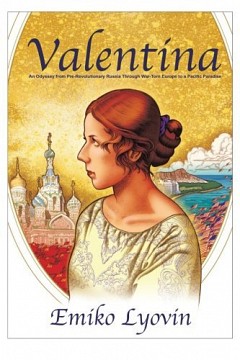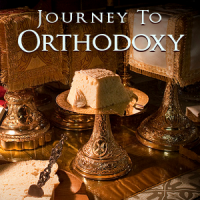
Valentina
An Odyssey from Pre-Revolutionary Russia through War-Torn Europe to a
Pacific Paradise
Trafford, 265 pages, (paperback) $17.48, 978-1-4669-4433-6
(Reviewed: November 2012)
This compelling biography tells the amazing true story of Valentina Lyovin and her journey from Russia after the Revolution, as well as her eventual immigration to America.
Born in St. Petersburg in 1902, the daughter of a Russian Orthodox priest, Valentina lives a fairly quiet existence, interrupted only by a cholera epidemic, until the coming of the Bolsheviks. In the chaos of the civil war that follows andfollowing the death of the Tsar and the royal family, Valentina and her family somehow manage to survive and stay together, even briefly hosting a commissar in the Red Army.
Eventually realizing the Communists will conquer Russia, the family makes its way to Macedonia in the newly formed Kingdom of Serbs Croats and Slevenes through Turkey and Greece. After watching her first husband die from tuberculosis, Valentina soon falls in love with another Russian refugee. The new husband worked as a forestry engineer, which forced him to spend weeks at a time away in the field. Valentina learns the languages in the region and gets a job as a teacher of French and German, while enduring frequent separations from her husband. She survives World War II and ends up teaching Russian in high school, first in Slovenia and then in Montenegro. Because the Communist government of Yugoslavia did not trust the Russian refugees it eventually allowed them to emigrate, and so, Valentina's family left everything behind and eventually emigrated to Canada by way of Italian and German refugee camps.their young son briefly immigrate to Canada.
Finally, because her son, Anatole, got a job at the University of Hawaii, she moved to Honolulu, Hawaii, and lived many years with his family, helping to raise her two grandsons.
The author, a Japanese woman who married Valentina’s son and spent much time with her, recounts this incredible history that reads like a novel, full of dangers, harrowing escapes, and family dramas. During a search of their quarters by the Communists, for example, Valentina desperately tries to hide her brother-in-law’s incriminating letters, which, if found, would threaten both the resistance and her family; she succeeds, but only through every bit of her cunning.
Although the beginning, discussing Valentina’s family, has many unusual Russian names that can be confusing, the book also contains a useful family tree.
Anyone interested in Russian history before and during the Revolution will want to learn about this incredibly strong, intelligent woman.
Also available in hardcover.













